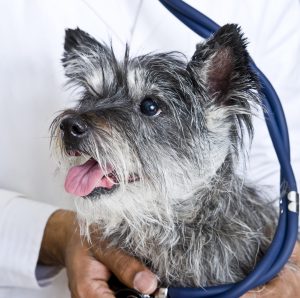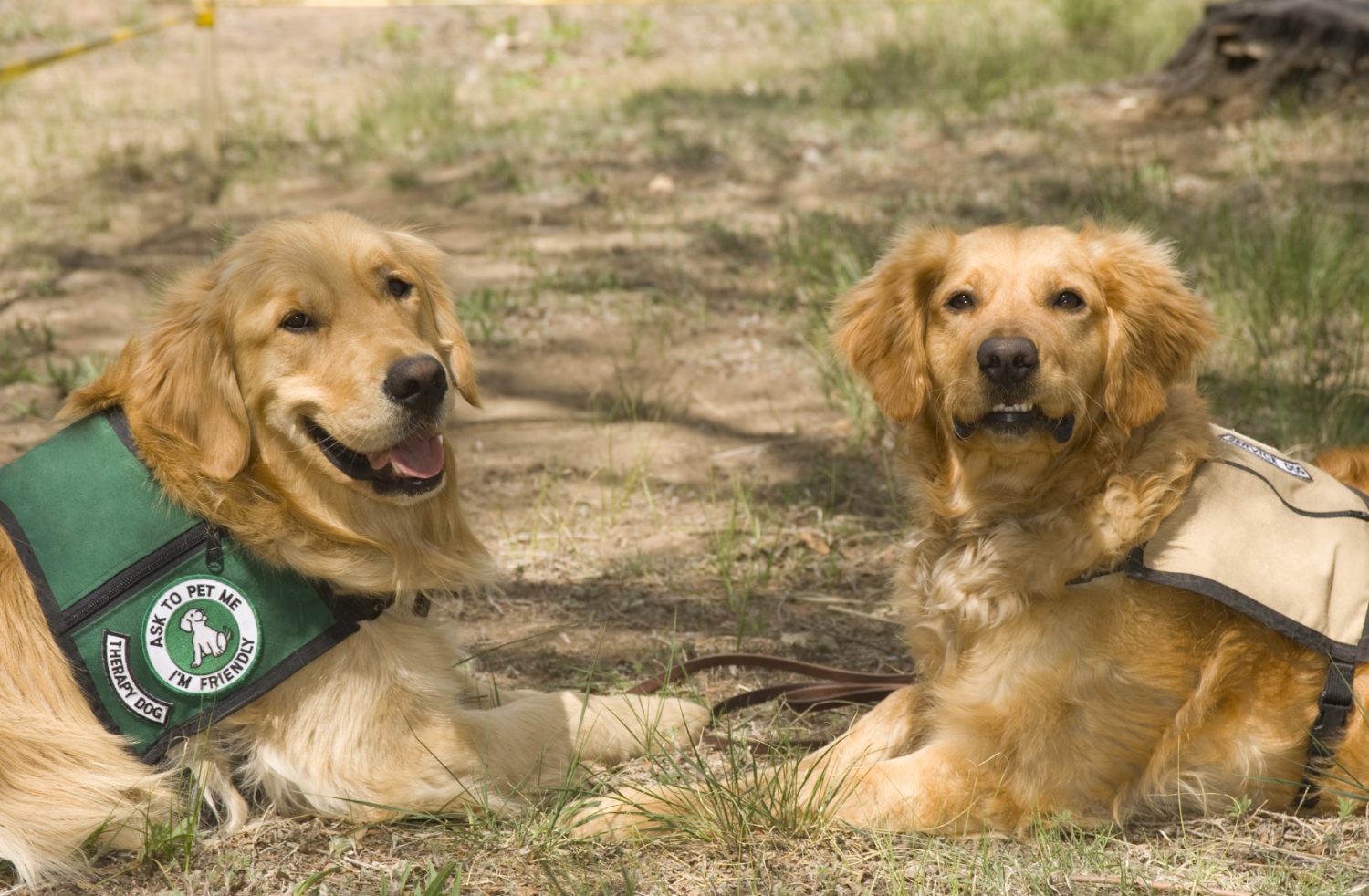Search Results for ‘seizure’
Veterinary Cancer Patient Emergencies and What to Do
 If you have a pet who has been diagnosed with cancer, you already know that things aren’t always going to be easy. These special patients do need attention and TLC but, in your concern, it is also easy to become jumpy about every little thing and worry needlessly. Veterinary cancer patient emergencies do happen, though, and any pet owner who is caring for one needs to be aware of the signs of a truly urgent problem.
If you have a pet who has been diagnosed with cancer, you already know that things aren’t always going to be easy. These special patients do need attention and TLC but, in your concern, it is also easy to become jumpy about every little thing and worry needlessly. Veterinary cancer patient emergencies do happen, though, and any pet owner who is caring for one needs to be aware of the signs of a truly urgent problem.
Special Needs of the Cancer Patient
The oncology department at Oakland Veterinary Referral Services understands that having a pet going through cancer treatment is not easy on either of you. We are very educated in the special needs of these delicate patients. Pets undergoing cancer treatment may have: Continue…
An Animal Owner’s Guide to Pet Liver Problems
 Liver problems are usually serious for a pet. As a pet owner, you want to better understand what is happening with your pet, even if they know he or she is in good hands. There are many different pet liver problems that dogs and cats can have. Read on to learn what you should know if your pet is having liver issues.
Liver problems are usually serious for a pet. As a pet owner, you want to better understand what is happening with your pet, even if they know he or she is in good hands. There are many different pet liver problems that dogs and cats can have. Read on to learn what you should know if your pet is having liver issues.
Pet Liver Problems: The Rundown
The liver is a very important organ, and pets and people alike need it to stay healthy. The liver has several vital functions including helping in digestion, aiding in proper blood clotting, regulating blood sugar, producing essential proteins, and detoxifying the blood. If the liver isn’t working right, serious problems can develop. Continue…
Hot-Weather Pet Safety Quiz
 Hot weather dos and don’ts seem obvious where our pets are concerned. Do make sure there’s plenty of drinking water available. Don’t leave pets in the car. However, many of the activities our pets love, and we don’t worry about, especially away from home, can be riskier than you might think, especially in hot weather.
Hot weather dos and don’ts seem obvious where our pets are concerned. Do make sure there’s plenty of drinking water available. Don’t leave pets in the car. However, many of the activities our pets love, and we don’t worry about, especially away from home, can be riskier than you might think, especially in hot weather.
Try this quiz about hot weather pet safety – the answers (near the end) may surprise you!
Which of these situations may be dangerous (or at least very uncomfortable) for your pet?
(Assume drinking water is freely available.) Continue…
Basic First Aid for Pets
 No one wants to think about a pet falling victim to accident or illness, but most of us will agree that thinking about emergency preparedness is important. The reality is: accidents happen and sudden illness or symptoms of distress can befall any pet, even the healthiest. Because of this, having a basic understanding of how to administer First Aid for pets is an important skill for any pet owner and can even save the life of a pet. Continue…
No one wants to think about a pet falling victim to accident or illness, but most of us will agree that thinking about emergency preparedness is important. The reality is: accidents happen and sudden illness or symptoms of distress can befall any pet, even the healthiest. Because of this, having a basic understanding of how to administer First Aid for pets is an important skill for any pet owner and can even save the life of a pet. Continue…
Portosystemic Shunts and Your Pet
 Portosystemic shunts (PSS), or liver shunts, are an abnormality in a pet’s blood flow through the liver. The liver normally filters toxins and impurities from the bloodstream. In a pet with a PSS, though, an extra blood vessel allows the blood to skip circulation through the liver. This prevents proper cleansing of potentially harmful substances from the body.
Portosystemic shunts (PSS), or liver shunts, are an abnormality in a pet’s blood flow through the liver. The liver normally filters toxins and impurities from the bloodstream. In a pet with a PSS, though, an extra blood vessel allows the blood to skip circulation through the liver. This prevents proper cleansing of potentially harmful substances from the body.
As you can imagine, a PSS can result in some pretty serious consequences. At Oakland Veterinary Referral Services, we are able to accurately diagnose and treat liver shunts medically as well as surgically. Continue…
Hidden Dangers: Potential Pet Poisons May Be Lurking in Backpacks…
 As a dedicated pet owner, we know you pay special attention to what your paw pals could potentially get into with the right recipe of curiosity, hunger and boredom. So, with kids back in school, we’d like to remind households of the hidden risks associated with pet poisons and what kids are bringing home in their backpacks and lunch bags.
As a dedicated pet owner, we know you pay special attention to what your paw pals could potentially get into with the right recipe of curiosity, hunger and boredom. So, with kids back in school, we’d like to remind households of the hidden risks associated with pet poisons and what kids are bringing home in their backpacks and lunch bags.
Can’t. Stop. Sniffing.
The smells we bring home could (and often do) drive our pets into an olfactory frenzy. Food smells, people smells, the scents from other animals… you name it, our pets are going to sniff it and catalogue it away in their brain. Your pet’s sniffer could lead to your child’s backpack where hopefully one would not discover any of the following potential pet poisons: Continue…
Canine Heroes: How Service Dogs Change Lives
 Most dog lovers know at least a couple of stories about a daring rescue by a four-legged hero or a dog who brightened a ward at the local children’s hospital. Dogs are amazing animals who are able to discern our deepest fears and respond to danger and distress. But, for the men, women, and children living with emotional or physical illnesses or disabilities, service dogs can be, in fact, life changing.
Most dog lovers know at least a couple of stories about a daring rescue by a four-legged hero or a dog who brightened a ward at the local children’s hospital. Dogs are amazing animals who are able to discern our deepest fears and respond to danger and distress. But, for the men, women, and children living with emotional or physical illnesses or disabilities, service dogs can be, in fact, life changing.
What is a Service Dog?
According to the Americans with Disabilities Act (ADA, 1990), a dog is considered a “service dog” if he or she has been “individually trained to do work or perform tasks for the benefit of a person with a disability”.
In order for a service dog to be matched with his or her human “handler”, he or she must go through rigorous training in a variety of areas that are dependent on the needs of the future human guardian. This could include assistance dogs trained specifically to respond to those with serious mental illness, to aid those Continue…
Xylitol: A Hidden Holiday Danger for Pets

Can you spot the Xylitol in this photo?
…Neither can your pet.
What do the fruitcake you made for your diabetic great-aunt Betty, the pack of gum in your stocking, and the plate of holiday cookies that your neighbor dropped off have in common? All of them may contain the artificial sweetener Xylitol, a dangerous and deadly substance for dogs. Xylitol is becoming more and more commonly utilized, which makes it important for pet owners to be on the defense.
What is Xylitol?
Xylitol is a sugar substitute that is found in items such as sugar-free gum, baked goods, and oral hygiene products. In people it is absorbed very slowly so there are no ill effects. In dogs, however, the substance is absorbed within 30 minutes, causing the body to release a large rush of insulin. This results in a life-threatening drop in blood sugar. Besides this, Xylitol can also have severe effects on the liver. Continue…
Lawn and Garden Chemicals and Your Pet
 Many people take pride in a green, weed-free lawn or a beautiful flower bed. Sometimes, though, the chemicals that are used to make this happen can cause more harm than good. Many of these chemicals are harmful and even fatal to our pets. Continue…
Many people take pride in a green, weed-free lawn or a beautiful flower bed. Sometimes, though, the chemicals that are used to make this happen can cause more harm than good. Many of these chemicals are harmful and even fatal to our pets. Continue…
Protecting Your Pet From Poisonous Plants
 You are probably aware of many toxins that are dangerous for your pets. You would never intentionally let them around antifreeze or feed them chocolate. But did you know that some of the most common toxins are actually plants? Continue…
You are probably aware of many toxins that are dangerous for your pets. You would never intentionally let them around antifreeze or feed them chocolate. But did you know that some of the most common toxins are actually plants? Continue…


